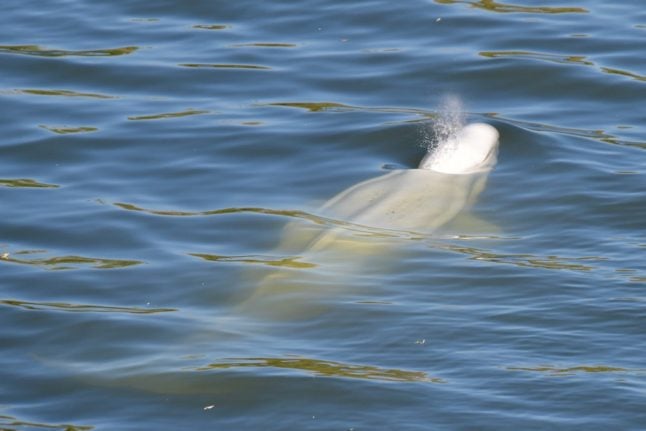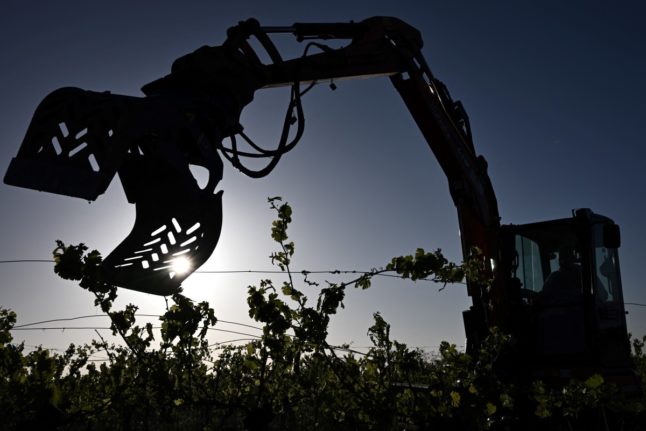Hopes are fading to save the animal, which was first spotted on Tuesday in the river that runs through Paris to the English Channel.
“It is alert but not eating,” Sea Shepherd France president Lamya Essemlali told AFP in a text message.
There was, however, “no worsening of its condition”, she said.
Since Friday, the whale has been between two locks some 70 kilometres north of the French capital.
Rescuers are considering last-ditch efforts to extract the animal from the Seine as the river’s warm water is harming its health.
One alternative would be to open the locks in the hope that the beluga will swim towards the English Channel, authorities said.
Opening the locks would harbour the risk of the whale moving further upriver towards Paris, which would be even more disastrous.
Several attempts to feed the whale have failed in the past days.
A three-person team from Marineland, Europe’s biggest sea animal theme park located in the southern French resort of Antibes, was expected to arrive on site later Monday.
“We’ve been following the operations at a distance from the start,” said Isabelle Brasseur, in charge of education, research and conservation at Marineland.
“We are slowly making progress,” she told AFP. “There’s not an ideal solution, we must weigh the pros and the cons” of each option to rescue the whale.
One of the experts on the team is a specialist for sea mammals, she said, adding they were bringing a stretcher and other equipment to try and move the animal.
On Saturday, veterinarians administered “vitamins and products to stimulate its appetite”, said a statement on Sunday by the police in Normandy’s Eure department, which is overseeing the rescue effort.
Belugas are normally found only in cold Arctic waters, and while they migrate south in the autumn to feed as ice forms, they rarely venture so far.
An adult can reach up to four metres in length.
According to France’s Pelagis Observatory, specialised in sea mammals, the nearest beluga population is off the Svalbard archipelago, north of Norway, 3,000 kilometres from the Seine.



 Please whitelist us to continue reading.
Please whitelist us to continue reading.
Member comments